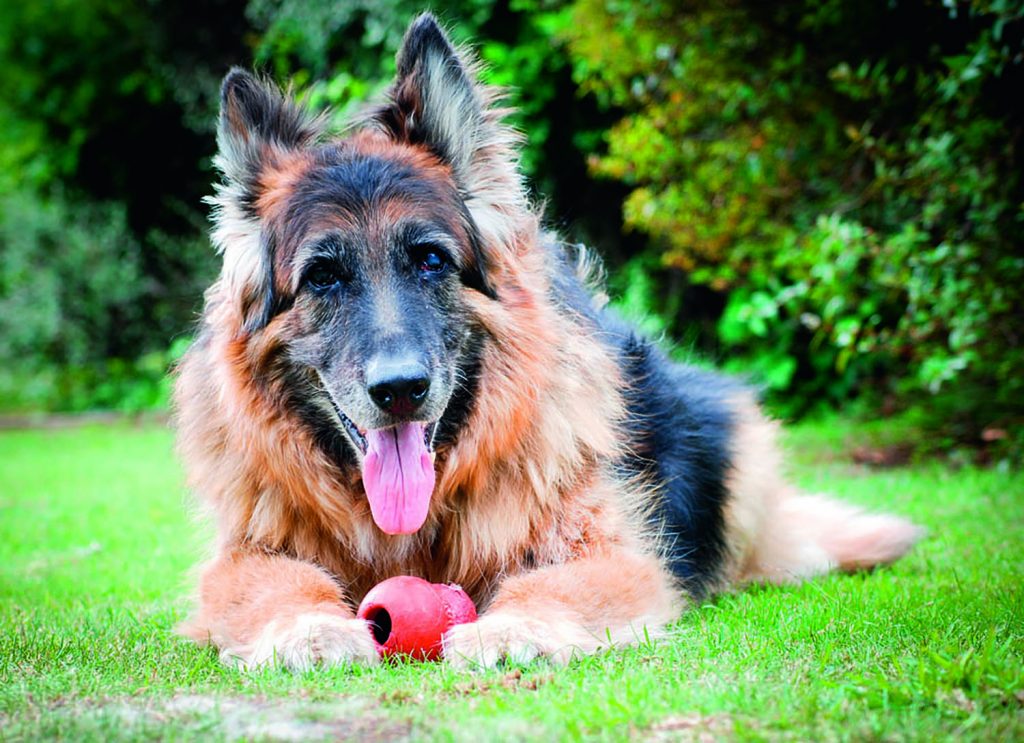Osteoarthritis is the gradual degeneration of the structures within a joint. In a healthy joint, the bones have a smooth surface and pads of cartilage, so they glide past each other. In an arthritic joint, the bone surfaces are worn or uneven and rub against each other, leading to swelling and pain.
Over time, this produces new bone growth which causes further inflammation and stiffness. The body then compensates by moving weight away from the painful limb(s), with the resulting changes in gait and loss of muscle. It is the most common cause of chronic pain in dogs, affecting as many as 80% of dogs over the age of eight.
What are the signs?
The signs of long-term pain are often subtle. Dogs are stoic creatures; they want to please us, and to continue with their routines. They will not cry out in pain, but they might show the following:
• Decrease in activity
• Change in temperament – quiet, grumpy
• Slowing down or unwilling to walk
• Pacing or restless at night
• Sleeping more
• Changes in posture, gait and muscle tone
What is the cause?
In most dogs arthritis is due to wear and tear, the aging process or the result of an injury. Being overweight or obese is a major risk factor which can speed up the progression of the condition. Some dogs are predisposed to developing arthritis due to heritable conditions like hip or elbow dysplasia – these are more common in some breeds, such as labradors and golden retrievers.
Things you can do
Identifying that your dog may have arthritis is the first step. Noticing subtle changes and flagging them with your vet means that treatments can start earlier and improve your dog’s quality of life. Actions as simple as placing runners on slippery floors, modifying walking routines and keeping your dog at a healthy weight can have a significant impact; there are free resources available at caninearthritis.co.uk.
Things your vet can do
We can provide anti-inflammatory pain relief, as well as advising on effective prescription-strength joint supplements, dietary changes and weight management. Your vet can also arrange for complementary therapies like hydrotherapy, physiotherapy and acupuncture.
Rebecca Hodson FdSc RVN, Deputy Head Nurse, Severn Edge Vets






